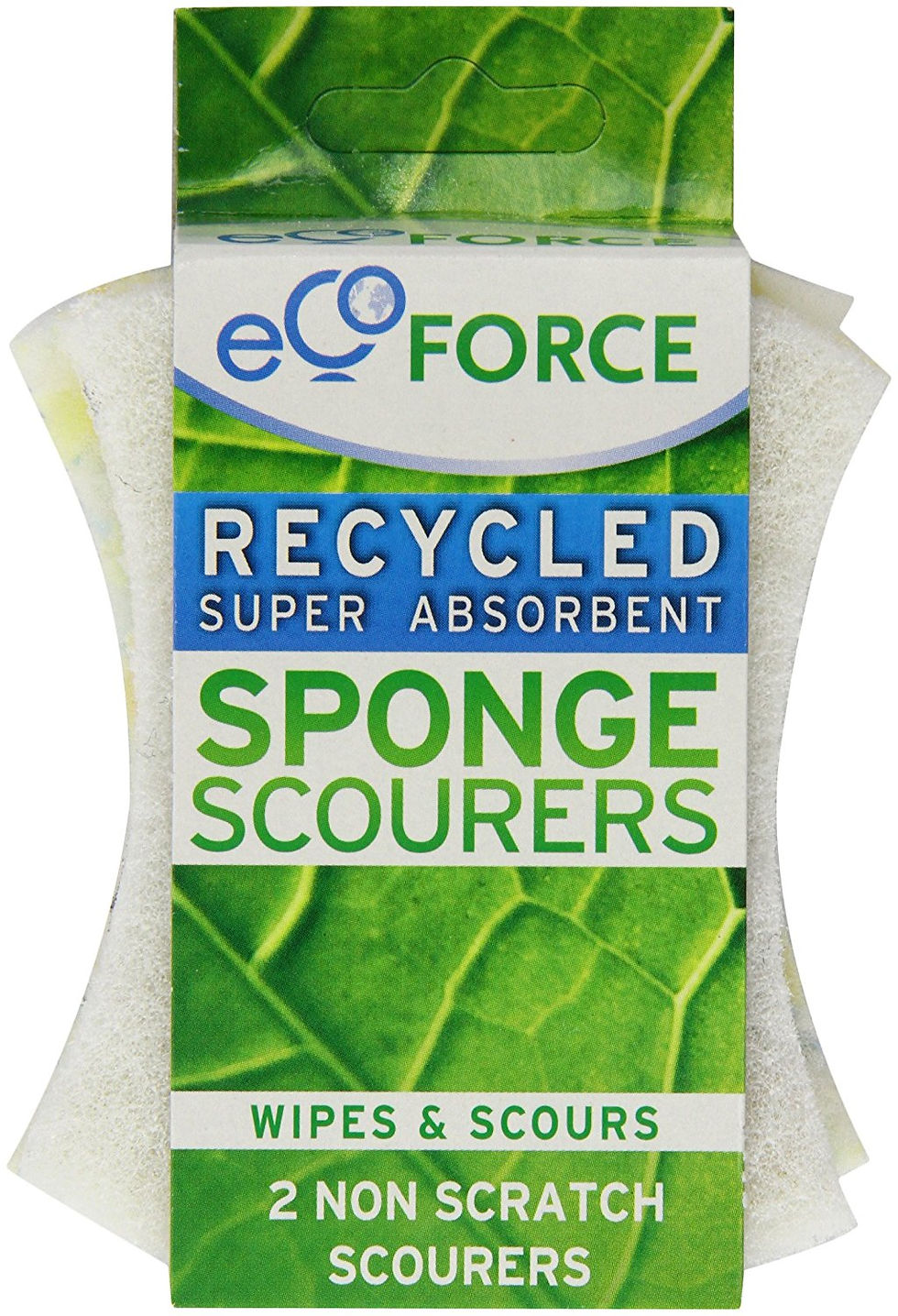Eco Alternatives to Kitchen Sponges/Scourers
- floatinglighthouse
- Jan 24, 2017
- 5 min read

I've been using these cheap sponges of 10 for 99p from the local SuperSaver, and it no longer feels right to be using these plasticky things that don't last for longer than a week and to keep throwing them out. I guess I'm a pretty aggressive scrubber when it comes to handwashing dishes with a sponge/scourer, and they tend to get pretty ripped up especially when cleaning cutlery. In this post I'll be trying to find an alternative based on the following criteria:
- Natural/Biodegradeable manufacturing source?
- Recycled/Recyclable/Repurposed?
- Zero-Waste Packaging?
- Affordable?
- Durable?
- Practical for intended purpose?
Now by no means does my list cover all the options, and I will be adding more as I try out new products! :)
Here is are 5 great tips from ApartmentTherapy.com
1. Use an eco-friendly sponge. Sponges may contain plastics, dyes, and synthetic disinfectants. Whether you're tossing it weekly or annually, use a sponge made from natural and sustainable materials. Twist's biodegradable Loofah and Nakedsponges are two options.
2. Choose a long-lasting, durable product. Cheap sponges can wear out quickly, especially if you do a lot of cooking and dish washing. We've had good experiences with vegetable cellulose pop-up sponges; read our reviews of the Trader Joe's and Williams-Sonoma versions. (We're also curious about the EcoSponge – anyone tried it?)
3. Disinfect. Sponges may harbor nasty pathogens, but you can keep yourself healthy and prevent the need for frequent replacement if you sanitize them. Microwaving is a popular trick, and you can also disinfect sponges by boiling them in water or soaking them in vinegar. Keeping sponges dry also hinders bacteria growth – we place them in a sunny window after dish washing.
4. Recycle. Just because a sponge isn't suitable for dish washing anymore doesn't mean it can't be used elsewhere in the home. Re-Nest reader SunnyBlue shared a great tip: cut one corner off the sponge to designate it for non-kitchen use. And if you use biodegradable sponges, throw them in the compost once they've reached the end!
5. Skip the sponge altogether. We're among those who prefer the shape and scrubbing power of a sponge, but we know many people are perfectly satisfied using dishcloths. These may be laundered as necessary and are probably the longest-lasting choice. Go the extra step and use rags made from sustainable fibers like hemp and bamboo, or cut up old towels to make your own.

euroScrubby
I found this great little scourer at our local Bert's Homeware Store.
Quick Review
- Natural/Biodegradeable manufacturing source?
According the the packaging and website the scrubby is made from 100% cotton, meaning it should be completely compostable, however the little strands are very hard and appear to be coated in some kind of plastic.
- Recycled/Recyclable/Repurposed?
No
- Zero-Waste Packaging?
The packaging was made of recyclable paper.
- Affordable?
I purchased mine for around £3.50 from Berts, so they are much more expensive than the 99p kitchen sponges. However it seems that it will last far longer and works far better and scrubbing out the bits that stick to pots and pans.
- Durable?
I've had mine for under a week, and already there are small patches where the little cotton/plastic bits have come off. This has most likely been when cleaning cutlery which easily rips up the scourer part of sponges, but I would have expected this apparently much more resilient product to stand up to that kind of use.
- Practical for intended purpose?
It doesn't work so well as a sponge, but it's fantastic as a scourer and since running out of the disposable 99p sponges it's been what I've been using and I can't complain besides it's incapacity to hold any liquid, meaning I had to always have some liquid mixed with dishwashing detergent to effectively clean the dishes. What I feel it replaces best is the steel wool used for scratching out burnt bits on pans, I've been using it for this purpose with great success.
- Overall
Overall, I wouldn't say this product replaces kitchen sponges/scourers well. It's a good replacement for the steel wool especially that it's made of cotton which is a far less energy intensive manufacturing process.

Ecoforce Non Scratch Sponge Scourer
I saw these at my local Hisbe (an inspiring supermarket named How It Should Be), but not having the cash at the time decided to purchase a 10-pack from Amazon.co.uk. After a week of use, I'm still using the first one I took out of the box and it's showing very light signs of being used up. Favourite sponge/scourer so far!
Quick Review
- Natural/Biodegradeable manufacturing source?
No
- Recycled/Recyclable/Repurposed?
According the the packaging and website the scrubby is made from 100% recycled material. The assistant at Hisbe said that you can also re-recycle them, however having worked at our local recycling factory for a few weeks as a paper sorter, I know for sure these would go straight down the "everything else" chute which would then be burnt for energy.
- Zero-waste packaging?
The packaging is completely recyclable, but the print is quite high gloss, so probably lots of unnecessary chemicals in the ink and light lamination.
- Affordable?
I purchased mine for £12.50 for a pack of 10, however this may mean that I receive 20 as on the image it does say "2 non scratch scourers". Meaning they are about 63p each, making them over 6 times as expensive as the cheap 99p ones.
- Durable?
After a week of use, these still function fantastically and I don't think I'll be taking out a new one for quite a while! Expect 2-3 weeks longevity :) They are made from a much denser material than the cheap 10p ones, which means they don't tear and wear out as quickly. However, be mindful of wringing them out properly and placing on an airy surface (I have a little hanging rack made of wire so there's plenty of air on all sides) as they may take more to dry out completely and so may be prone to getting spoiled from retaining too much moisture.
- Practical for intended purpose?
These are great, besides their durability, they retain the water and soap mix much better than softer sponges, meaning the amount of washing up liquid and water needed is much less than using the cheaper options or the euroscrubby. I've got through many large piles of washing up "refuelling" the sponge with water and washing up liquid only once or twice over the past week.The shape of it is also great, paired with it's greater density, as the edges strongly get into the corners of pots, glasses and other edges of kitchen items. I use it on my nutribullet parts, mugs, pots, pans, cutlery and anything else that might need washing and it's worked far better than any other sponge/scourer i've used so far. One thing to keep in mind though is that the scourer is not strong enough for removing stuck items to the bottom of pots and i'm using the euroscrubby with much success for that purpose.
- Overall
These are great, and I feel happy every time I use one of them. As it's recycled it's contributing to a good cause, as well as its efficiency means i don't have to use as much washing up liquid or water.

Comments